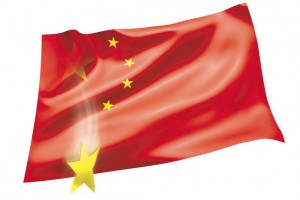Despite its reputation as an economic powerhouse, Chinese economic and government data show inconsistencies in exports, colossal corporate and local debt, an imminent collapse in its shadow financial sector, and the Chinese government’s misunderstanding of the Chinese citizens’ desire to purchase gold.

Last month, according to Chinese government figures, total exports grew a whopping 10.6% compared to analysts’ moderate forecast of just 2% as reported by the Wall Street Journal. How can analysts underestimate by 8.6% when they are normally off by only a fraction of a percent? Many Chinese experts such as Shao Xiaoyi warn that “the figures may be inflated by fake trade transactions, where traders forge deals to sneak cash into the country past capital controls.” At the same time of the reported tremendous growth, Chinese manufacturer’s reported “overall orders and new export orders fell, while inventory [of unsold goods] rose” according to JP Morgan economist Haibin Zhu. The Purchasing Managers’ Index of Chinese economic activity is also below 50 points, which signals a contraction in the economy. Additionally, international corporations have been forecasting little to no growth in China. Two consumer goods companies—Nestle SA and Pernod Ricard SA—said their sales last year were hurt by a continuing slowdown in China’s consumer demand, which dropped as much as 18%.
More disturbing news is the rise in China’s corporate debt to $12.1 trillion. Standard and Poor’s estimates that China’s corporate debt will exceed the US’s corporate debt this year, making China’s corporate debt the largest in the world. As a result, according to Shen Hong from the Wall Street Journal, “Borrowing costs for Chinese companies are raising strongly, a shift that could herald weaker corporate profits, slower economic growth and even the first defaults by indebted corporations on the mainland.”
In the public sector Chinese local government debt has risen 67% to $3 trillion. According to Robert Samuelson, “local debt now equals about 33 percent of China’s economy up from 10 percent in 2008 and almost nothing in 1997.” Most of the local debt is from financing new infrastructure such as roads and bridges and from building new cities notoriously known as “ghost cities” constructed of commercial buildings that sit empty and uninhabited apartments. Tao Wang of UBS (a Swiss global financial services company) believes “dependence on this investment spending poses a dilemma for China.” If localities cut spending, the economy would be severely weakened. If localities keep spending at the same rate, localities could face default.
Problems in China’s financial sector stem from a practice known as “shadow banking.” Shadow bankers, operating without regulation, borrow from regulated banks to lend at higher interest rates to businesses and local governments. According to Time Magazine’s Michael Schuman, “An expansion of risky and complicated financial practices in the world’s second-largest economy has the potential to explode into a major economic crisis.” Now these shadow banks are in trouble and are being bailed out. Aaron Back of the Wall Street Journal predicts that these shadow bankers will cause a domino effect and that “more distressed trust situations are inevitable and will test Beijing’s resolve.”
This month China became the biggest buyer of gold. Chinese officials believe this demonstrates the strength of Chinese wealth in the private sector. Gold, however, is often used as a hedge against inflation or a slowdown in the economy. As economist Kimberly Amadeo notes, “investors flock to gold when they are protecting their investments from either a crisis or inflation.” According to Laura Clarke of the Wall Street Journal, “Fears about the slowing Chinese economy, a potential property bubble and fragile financial system have spurred buying, especially as retail gold buyers in China have few other appealing options.”
The Chinese government should heed the warnings of an old Chinese proverb, “To tell only half the truth is to give life to a new lie.” China must stop giving the world half truths if it wants to become a real world economic superpower. If it fails to follow ancient wisdom, it too will be doomed to the same fate as the Soviets.

5 replies on “China: A Falling Star”
[…] https://www.houghtonstar.com/2014/03/01/china-a-falling-star/ […]
A very informative article, seeing as there is more to China’s economy than people think. It will be interesting to see what China will do to in the future.
I’m surprised by this reporting, given the general public consensus that China is a superpower rapidly overtaking the United States. It will be fascinating to see whether they decide to employ further capitalist reforms, or instead allow things to continue as they are. If China’s economy goes into recession, will the current slow recovery of the United States be injured?
Very good read, I find this interesting because China is definitely seen by Americans as this super rich country, as we get a good amount of our retail products from there, but obviously that is not the case. Also, nice photo.
very well written, of particular importance is the close relationship between individuals in local government and those building these “ghost cities”. the local governments often falsify a need for these projects in order to receive funds from the banks which in turn invest in the companies awarded the project by these local governments, so it is a self serving system that ultimately creates very little that the Chinese people can actually use.